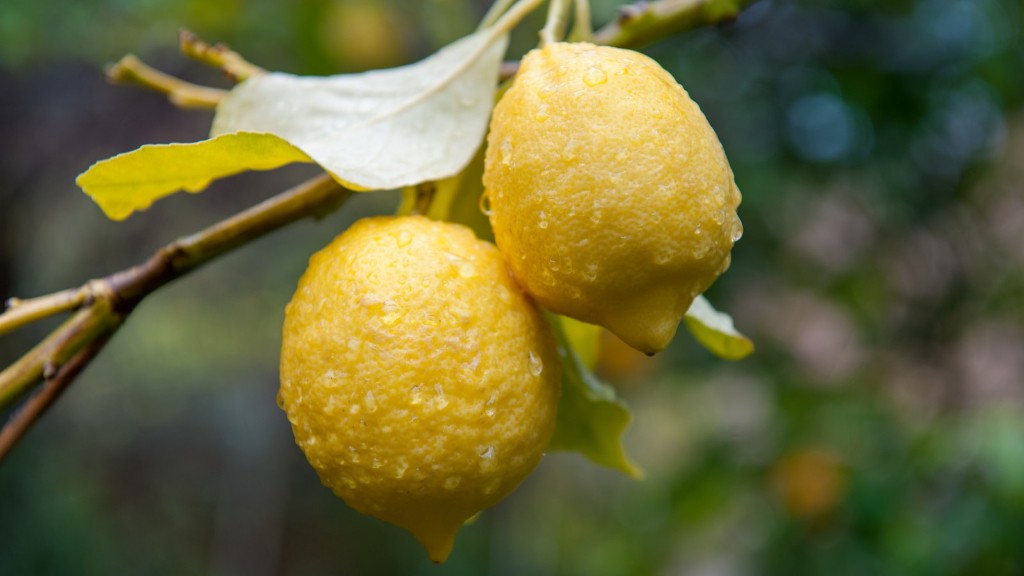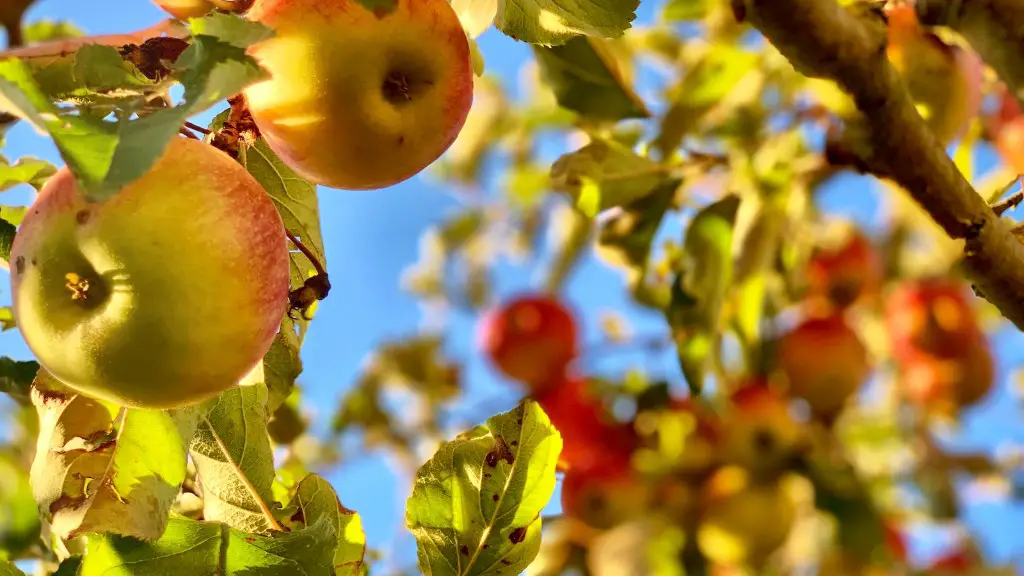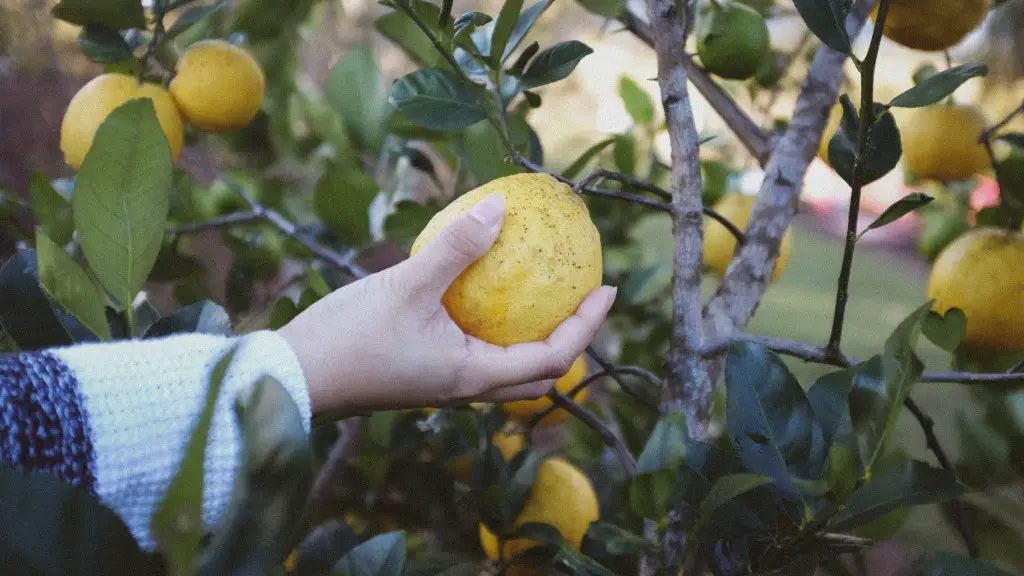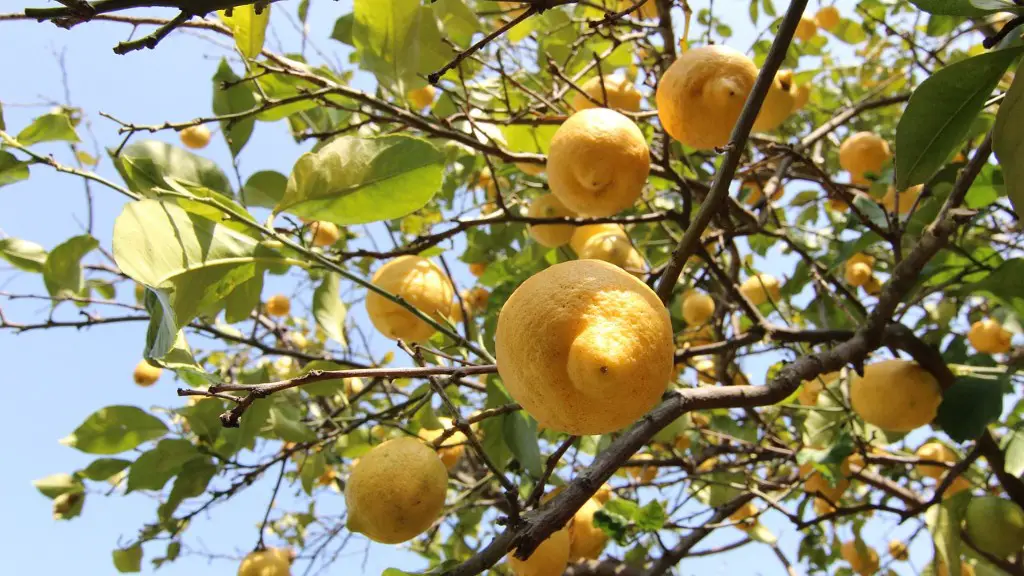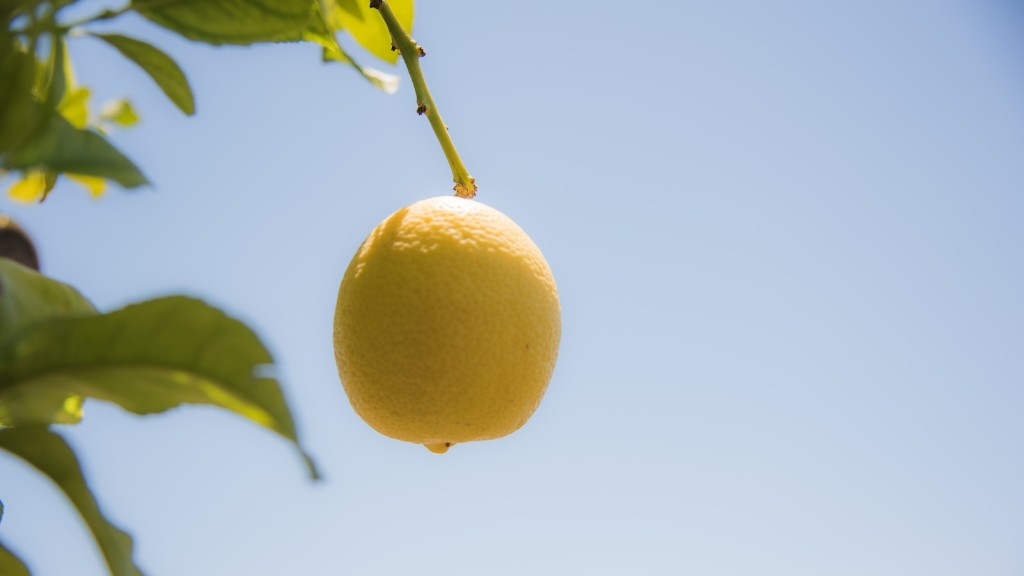A robust lemon tree requires full sunshine, well-draining soil, proper irrigation and fertilization. To ensure your lemon tree never runs out of energy to grow, yield lemons and remain healthy, adding fertilizer is the key. Lemon trees can be fertilized regularly, a few times a year, depending on each tree’s needs. Knowing what fertilizer to use, when and how will ensure your lemon tree’s success, let’s dig deeper into this subject.
It’s important to give your lemon tree a balanced fertilizer, with the elements nitrogen, phosphorus, and potassium. Nitrogen is necessary for the production of foliage and seems to encourage more vigorous growth. Phosphorus is necessary for good fruit production and improved root development. Potassium helps regulate water and nutrient levels and strengthen the tree’s immune system.
Organic almost always is preferable over chemical, synthetic fertilizers. Chemical fertilizer can provide an instant boost for your tree, but organic fertilizer gradually releases its nutrients over time, allowing the tree to absorb them as it needs them. Plus, organic fertilizers are typically pet and kid-safe.
If you’re looking for an organic fertilizer specifically for lemon trees, consider one high in phosphorus and potassium, with a small amount of nitrogen. Also, it should be high in foliar nutrients specifically formulated for citrus trees. If the weather is too dry, give your tree an extra boost of water to wash away any fertilizer salt buildup.
Furthermore, keep an eye on your lemon tree’s leaves. If they’re a dark, deep green, it means they’ve been absorbing nitrogen and they’re getting enough fertilizer. If the leaves start to turn a yellowish color, it’s a sign you’re not providing enough fertilizer and it’s time to feed your tree.
When should you fertilize? Fertilize your lemon tree one or two times a year or every few months in warmer climates, or every six months or so in cold climates. It’s always better to fertilize in the spring and mid-summer during the growing season, when your tree needs the most nutrients. Do not fertilize during the winter as it’s a period of dormancy for the tree.
Composting
Composting is a great way to provide your lemon tree with essential nutrients and beneficial microbes. Compost adds organic matter to the soil, boosts its fertility and increases the soil’s ability to retain water and nutrients. All of this helps stimulate and strengthen the root growth of your lemon tree, so the tree can take better advantage of the soil nutrients and conduct photosynthesis more efficiently.
If composting is your chosen path to fertilize your lemon tree, you can use composted manure, green manure, worm bins, animal manure and kitchen scraps. Just keep in mind that kitchen scraps should be limited as they’re high in nitrogen. Furthermore, it’s best to use aged manure, one that’s been left to sit for a few months before use.
When applying compost or any other organic fertilizer, you’ll need to do it on the soil in a circle around the base of the tree, up to the drip line. Avoid cultivating too close to the trunk, as the roots are delicate and easily damaged and never apply compost on top of the tree itself.
Organic fertilizers help your lemon tree in much more than just providing essential plant nutrients. They also foster beneficial microbial activity in the soil, reduce the need for chemical fertilizers and provide your tree with some degree of protection against fungi, nematodes and other soil-borne diseases.
Soil Amendments
To prepare the soil for a new lemon tree, soil amendments can provide an extra boost. Organic soil amendments are full of beneficial microorganisms and nutrients that a newborn tree needs to get a good start. High-quality amended soil will possess humus, minerals and trace elements, as well as a healthy balance between liquid and solid particles.
With this in mind, it’s best to mix 1/3 of your amended soil with 2/3 of the existing soil before you plant, to help the lemon tree transition from its pot to the new environment. Remember to have healthy drainage, as lemons are quite sensitive to excess moisture.
When it comes to organic soil amendments, there are many to choose from. For example, poultry manure is a rich, organic amendment providing the soil with an abundant source of nitrogen, phosphorus, and potassium. It also contains high amounts of lignin, an organic compound that helps the soil retain more moisture and nutrients. Lastly, both composted cow manure and fish emulsion can give your soil more minerals and help maintain a good pH.
Pest Management
It doesn’t matter how well you fertilize or care for your lemon tree, with pests everything can quickly unravel. So, pest management is essential for tending for your lemon tree. The most common citrus pest are aphids, mealybugs, scales, and mites. Keep an eye on your lemon tree for any signs of pests, inspecting both the foliage and the roots.
When it comes to dealing with citrus pests, you can always opt for chemical agents, such as highly toxic insecticides. However, these can disrupt the tree and soil microbes and may only provide a temporary fix. Alternatively, try organic solutions such as organic insecticidal sprays, herbicides, and horticultural oils.
You can also combat pests by maintaining good soil fertility and applying compost regularly, as a healthy lemon tree is less prone to pest pollination. Among natural enemies, you can count on ladybugs and lacewings to help. They’ll feed on the larvae of harmful pests, keeping them away from your tree. Attracting beneficial insects such as bumblebees, parasitoids and predatory wasps is also a great way to boost your tree’s natural defense against pests.
Watering
Without water, any lemon tree will wilt, no matter how much fertilizer it gets. Proper watering is key to make sure your lemon tree doesn’t suffer from dehydration. While other trees tend to appreciate periodic drenching and prolonged dry periods, lemon trees have a shallow root system and prefer the soil to stay moist but not soggy.
Ideally, you should water your tree once every two weeks, especially during the growing season. However, this may vary, depending on climate and soil type, so pay close attention to your tree’s reaction. Aim to water deeply, but gradually, to allow the water to be absorbed both at the surface and deeper down in the soil.
In periods of high rainfall or during the winter months, when the tree is dormant, reduce the frequency of watering considerably. As citrus trees are prone to root rot, it’s always better to slightly over-water every now and then than to consistently underwater your tree.
Pruning
Most people tend to forget the third corner of the fertilizing-watering-pruning triangle. Pruning is key to promote healthy growth and yield, and should be a regular practice to maintain your lemon tree. So, when you start to prune a lemon tree remember to cut back dead and dying branches, weak and crossing branches, and low-hanging branches.
Similarly, pruning is an excellent way to promote air circulation and improve fruit production. Bear in mind that if you prune an established lemon tree heavily, you will have fewer lemons that year, so try to strike a balance. The best time to prune a lemon tree is in late winter or early spring, when the citrus tree is entering the active growth stage.
Finally, pruning brings out the tree’s best shape and also encourages productivity. A good pruning prevents the tree from becoming infested with pests or succumbing to disease.
